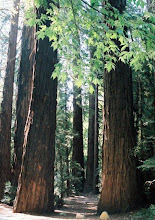We had fun on Sunday! We celebrated Flip Flop Sunday this week. I wore my flip flops with butterflies on them, we sang lots of fun hymns (yes, there are fun hymns!), and shared a gospel story. I passed out bottle of bubbles during the children's sermon. Some people not only wore flip flops on their feet but also on their clothing! This Sunday is about so much more than footwear though, so I thought I would share some of the background thoughts with you.
A few years ago, I was having a conversation with some teens when someone remarked that they wished they could wear their flip flops to church on Sunday. Then I was asked if there was a reason that they couldn't or shouldn't; after all, does it matter to God? Which led to a discussion around the question: doesn't God accept us just the way we are? I agreed and then we had a great conversation about what that means.
Out of that discussion came the idea for "Flip Flop Sunday" - a worship service designed to be fun and friendly where the intentional focus is the invitation to "come in your flip flops" as a reminder that God loves and accepts you just the way you are.
Why do flip flops work as a symbol? They are generally a humble shoe. Even these days, you can find them on sale for a dollar or two. Because they go between the toes, they are usually worn without socks so your feet show in their complete glory (bunions, corns, toe hair, cracks, blisters and all) and after walking around a while, your feet get dirty and dusty. Some places don't allow flip flops or openly discourage them: places of work, some schools, and certain restaurants. They certainly aren't seen as formal or dress-up wear although I've seen them given as bridesmaid gifts to wear for the reception or worn at after-prom parties. Although they are simple shoes, flip flops are associated with summer and the stuff we like about summer: dressing casual, being relaxed and having fun.
Flip flop Sunday is an intentional time to remember and celebrate once again that we are saved by God's grace who knows us completely and loves us just the same. This amazing grace and love of God is a continual source of joy and comfort. And besides, it is not only okay but also appropriate for us to celebrate God's love! Or, as it says in the communion liturgy, it is "indeed right and salutary that we should in all times and all places give thanks and praise" to God.
Shouldn't every Sunday be flip flop Sunday? Absolutely and in God's eyes, everyday God reaches out with forgiveness, life, and love to us no matter what we look like, no matter what we have done or left undone, no matter how sure our faith or how shaky or absent our belief. Before we have a chance to say a word, God comes running with open arms to welcome us. It is the image that Jesus gives us in the parable story of the prodigal son (Luke 15:20). It is one of the most comforting images of God that is given to us.
God does not need flip flop Sunday but it is we who need the reminder. It is too quick and easy for us to turn gestures of love and respect into rules and requirements: one must dress nice, say these words, act this way, and do these things. Taking time for a flip flop Sunday is a gentle reminder to relax into God's loving arms and allow ourselves to be held, comforted, and cared for. It is also a reminder that we are called to give the people around us the same welcome, forgiveness, and love.
Jesus reminds us to be humble and not to assume that we are better or more deserving than anyone else. Wearing our flip flops is a reminder that we all come to the table with dirty feet, in need of Jesus to wash us clean. Jesus does not call us to church to sit in seats of honor but to do the things he did; wash feet, feed the poor, care for the sick, and show love for all people. Read Luke 14:7-14
+copy.jpg)






